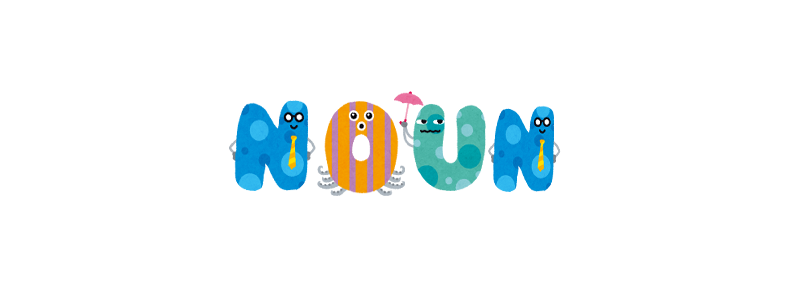In this article, we are going to discuss the feature of Chinese nouns.
– What is the difference between Chinese nouns and English nouns?
– How to express plural in Chinese nouns?
– Do Chinese nouns countable?
Syllables of Chinese Noun
Nouns in Chinese usually consist of one or two syllables. While a few may have three syllables, four-syllable nouns are quite rare. Nouns with multiple syllables are typically formed by building meaning-related syllables around the root word. For example:
| Literal Meaning | |||
| 桌 | zhuō | table | table |
| 书桌 | shūzhuō | desk | book table |
| 餐桌 | cānzhuō | dining table | meal table |
| 木桌 | mùzhuō | wooden table | wood table |
| 桌布 | zhuōbù | tablecloths | table cloths |
| 桌遊 | zhuōyóu | boardgame | table game |
| 桌球店 | zhuōqiú diàn | table tennis store | table ball store |
Conjugation of Chinese Noun
Chinese nouns do not change for numbers, genders, tenses, or positions.
Human nouns can be followed by the plural suffix 们 men; they then take on definite reference. However, it cannot be used with a number.
朋友 péngyou friend or friends
朋友们 péngyoumen the friends
X3个朋友们 3 ge péngyoumen the 3 friends
X书们 shūmen books
| 我的书 | wǒ de shū | my book |
| 他们的书 | tāmen de shū | their books |
| 昨天看的书 | zuótiān kàn de shū | the book I read yesterday |
| 明天要看的书 | míngtiān yào kàn de shū | the book I am going to read tomorrow |
| 我买书 Object | wǒ mǎi shū | I buy a book |
| 书是我的 Subject | shū shì wǒde | The book is mine |
The or A(n)
There are no “the: or “a(n)” in Chinese.
How the Chinese express “the”
| 我买书 Object | wǒ mǎi shū | I buy a book |
| 书是我的 Subject | shū shì wǒde | The book is mine |
Countable or Uncountable
Everything is countable and everything is uncountable in Chinese. Nouns are counted by adding numbers or choosing a measure word, and uncountable nouns are also expressed by adding a measure word. However, regardless of whether a noun is countable or uncountable, the noun itself does not change.
| 水 | shuǐ | water | |
| countable | 一滴水 | yìdī shuǐ | a drop of water |
| uncountable | 一点水 | yìdiǎn shuǐ | a little water |
| countable | 一杯水 | yìbēi shuǐ | a cup of water |
| uncountable | 一些水 | yìxiē shuǐ | some water |
| countable | 一只狗 | yìzhī gǒu | a dog |
| uncountable | 很多狗 | hěnduō gǒu | many dogs |
Chinese Suffixes Noun
子 zi
To define a word as a noun
鼻子 (bízi) nose
鞋子 (xiézi) shoe
狮子 (shīzi) lion
To change a word into a noun
刷子 (shuāzi) = to brush + zi = a brush
傻子 (shǎzi) = foolish + zi = fool
兒/儿 er
To define a word as a noun
花儿 (huār): flower
孩儿 (háir): child
小猫儿 (xiǎomāor): little kitty
To distinguish a noun from a verb
画 (huà): to paint
画儿 (huàr): painting
头 tou
To define a word as a noun
馒头 (mántou): Chinese steamed bun
砖头 (zhuāntou): brick
锄头 (chútou): pickaxe
老 lǎo
To define a word as a noun
老板 (lǎobǎn): boss
老师 (lǎoshī): teacher
老虎 (lǎohǔ): tiger
者 zhě, 家 jiā, or 员 yuán
To define a word as an occupation
作者 (zuòzhě): author
记者 (jìzhě): journalist
画家 (huàjiā): painter
政治家 (zhèngzhìjiā): politician
运动员 (yùndòngyuán): athlete
消防员 (xiāofángyuán): firefighter


